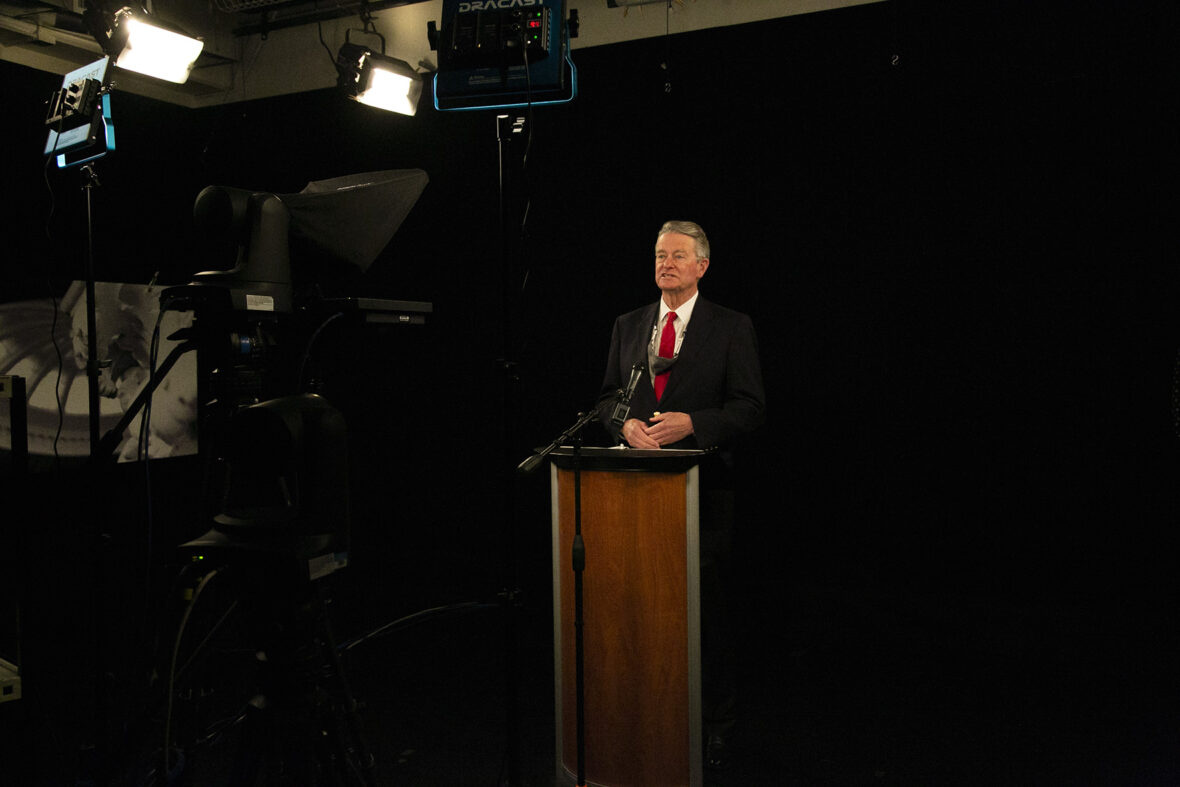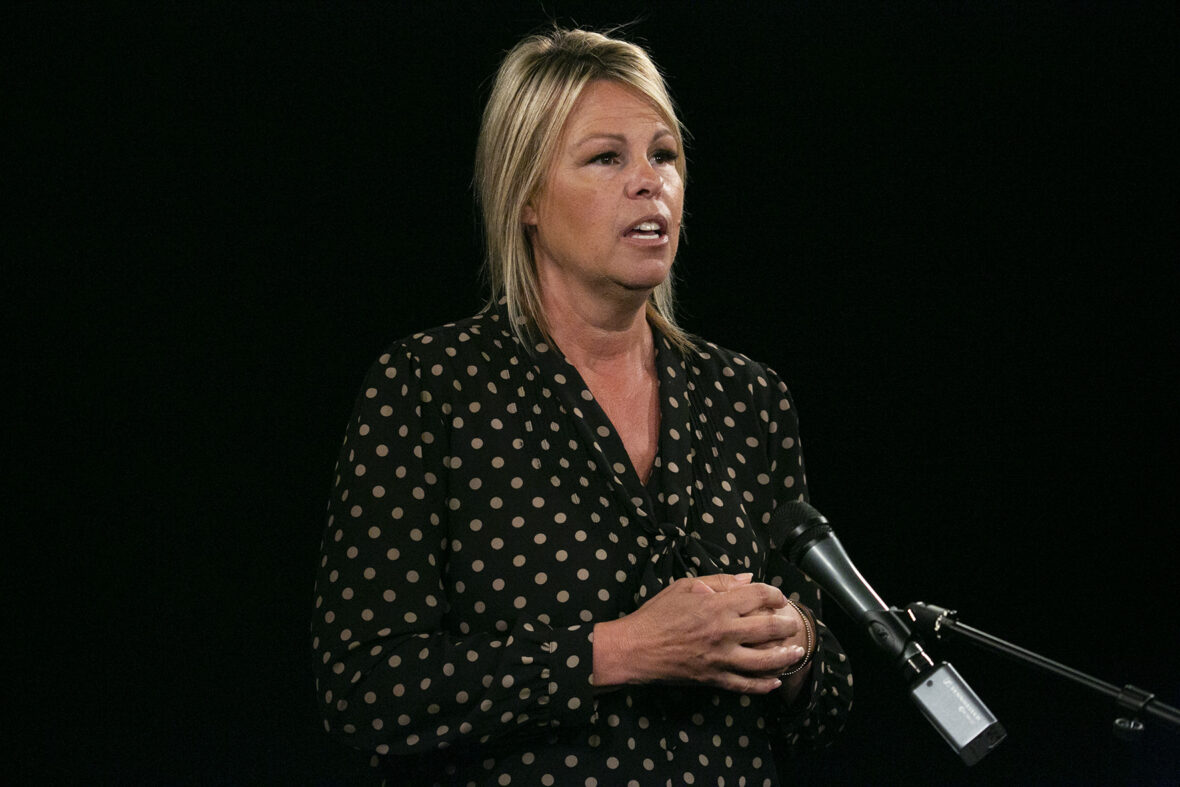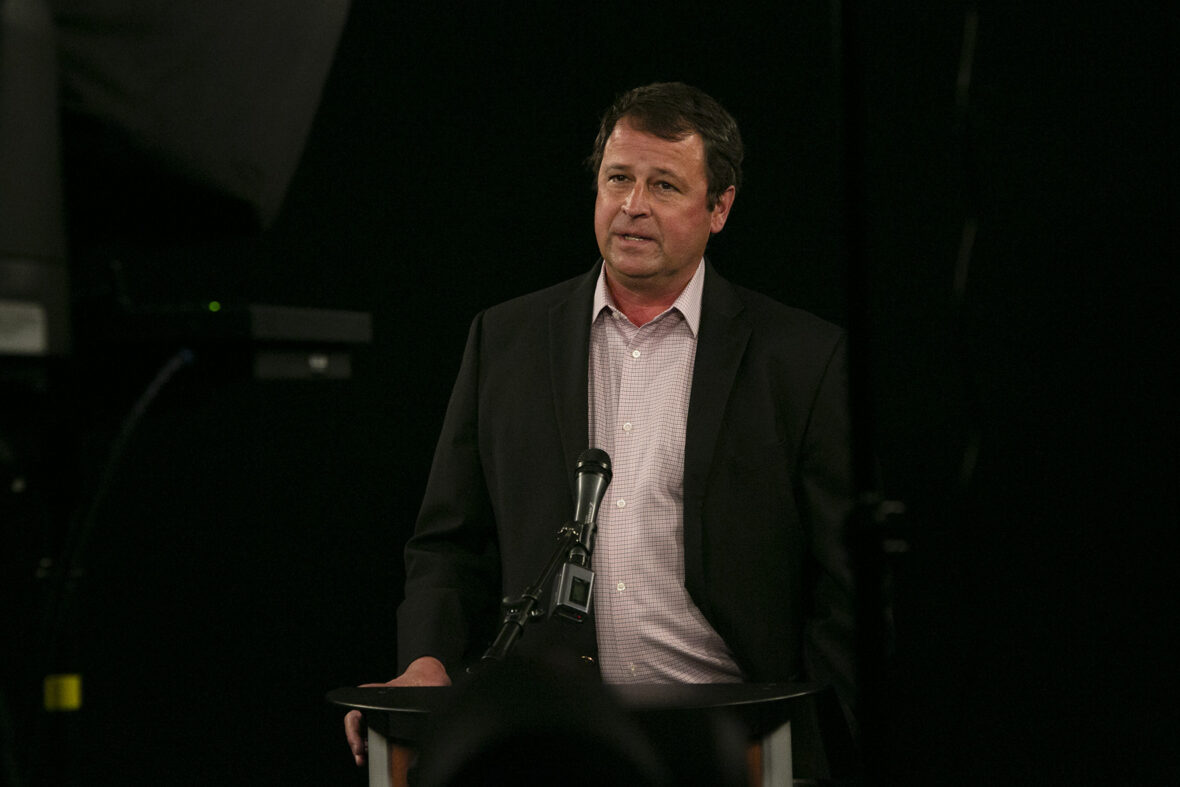On Day 102 of the third longest legislative session in Idaho history, Gov. Brad Little and his State Board of Education tried to take back the narrative Thursday.
A bit. And carefully.
Little — who has stayed silent as a social justice furor has brought the education budgeting process to a screeching halt — urged parents to bring any concerns to local educators, and urged the state to refocus on the needs of students, families, teachers and businesses. “It is time to get back on track.”

Two of Little’s State Board appointees, outgoing President Debbie Critchfield and newly named President Kurt Liebich, tried to strike a balance between acknowledging legislators’ social justice concerns and downplaying the problem. “I have personally not seen any evidence of systematic indoctrination,” Liebich said during a Thursday afternoon news conference.
However, the narrative has long since gotten away from Little and the State Board this session. Maybe, as Liebich suggests, the national debate over critical race theory and social justice would have inevitably spilled over into Idaho. For three months, though, Little and the State Board have helped the issue catch fire by publicly staying out of the fray.
During Thursday morning’s board meeting, State Board member David Hill could not have summed up the situation more concisely. “In the absence of clear voices, those that shout will be heard.”

Thursday morning brought things to a head — and in the starkest terms.
In the Statehouse, the House completed its 24-hour push to pass a bill aimed at curbing critical race theory. Introduced Wednesday afternoon, House Bill 377 now heads to the Senate.
Meanwhile — in a conference call originating at State Board offices across the street from the Capitol — board members and college and university leaders vented and commiserated. It was, at times, almost an exercise in group therapy:
- When critics suggest indoctrination is rampant in the schools, Liebich said, it constitutes “a direct attack on this board.” And the damage goes beyond that. “It’s had a significant impact on how our education system is perceived in this state.”
- State Board member Linda Clark drew upon her 47 years in public schools: “I never at any point saw one single issue of indoctrination. … Frankly, (teachers) have all they can do to teach the skills and help students grow and mature.”
- When the State Board called on college and university presidents to weigh in, Idaho State University President Kevin Satterlee urged the board not to lose focus. “I just think that the real issue is combatting what is just completely inaccurate misinformation and hyperbole that exists out there.”
Strong words, largely unheard.
Because many interested Idahoans were instead listening to the debate on the House floor.
When Liebich and Critchfield talked to reporters, they said nothing that contradicted Thursday morning’s board discussion. But the sharp tone — and perhaps the fight Idahoans needed to hear — was notably lacking.
During the news conference, Critchfield rejected the idea that the State Board had been outflanked.
“I don’t believe we came too late to the party on this,” she said, saying the board has continued to press its same education priorities, such as literacy and college and career readiness.
But while the State Board has routinely endorsed or opposed education policy bills in past sessions, it did not do so this year.
It took no position on HB 377, although Critchfield was involved in behind-the-scenes discussions about the bill. She noted, accurately, that the bill passed the House before the State Board could have weighed in. “We were not in a position to have a position.”
Even when the State Board had time to take a position, it didn’t. The board took no stance on House Bill 352 — a ban of instruction of racist and sexist concepts, aligned in ideology with HB 377. The board also stayed silent on House Bill 364, the House-passed “Protecting Critical Thinking in Higher Education Act.” The board remained neutral on these bills, Critchfield said, because it wanted to leave the debate to lawmakers.
But as the 2021 session nears the end — perhaps — the social justice debate will continue in a new venue, posing a new challenge to the State Board.
Lt. Gov. Janice McGeachin, not an ideological ally of Little’s, is moving forward with her plans to convene a task force “to examine indoctrination in education.” The group could begin meeting in May.
“I get really concerned when the word indoctrination is thrown around,” Liebich said Thursday afternoon. “When you throw that around loosely, in a way that undermines confidence in the education system, that causes me great concern.”
Liebich expects the State Board to be involved in the task force process. However, he also said Thursday that the board’s first priority should be to tweak its policies on freedom of expression on college campuses, and figuring out how to quantify complaints or concerns throughout the education system.
Both goals may be sound. But neither are likely to capture the attention of whatever McGeachin’s task force has to say.

By losing the narrative, the State Board might have also missed an opportunity this year.
Liebich recounted the session’s struggles: a $6 million-a-year federal early education grant program, a $1.1 billion public school teachers’ budget, a $315 million higher education budget, all torpedoed on the House floor, over claims of indoctrination.
It wasn’t what Liebich expected in January, when he expected the 2021 legislative session to focus on learning loss, and helping students make up the ground they lost during the coronavirus pandemic. “There has been precious little to no conversation about that.”
He has a point. The social justice debate has taken up a lot of oxygen. But that didn’t just happen overnight. It’s been 102 days in the making.
Each week, Kevin Richert writes an analysis on education policy and education politics. Look for it every Thursday.
